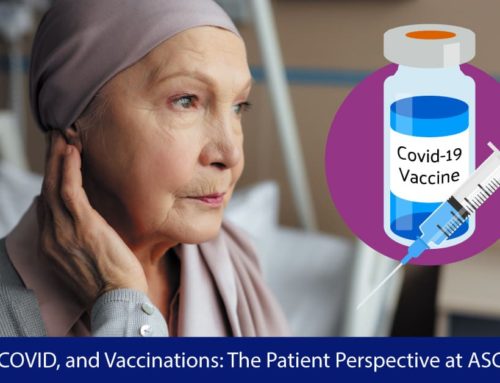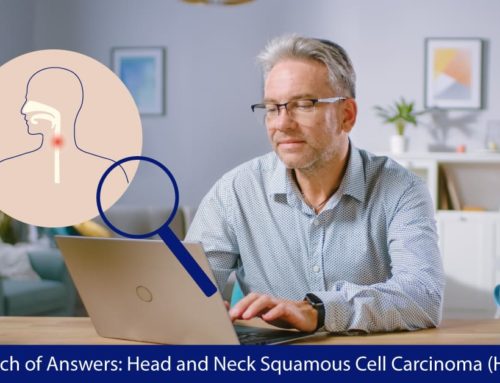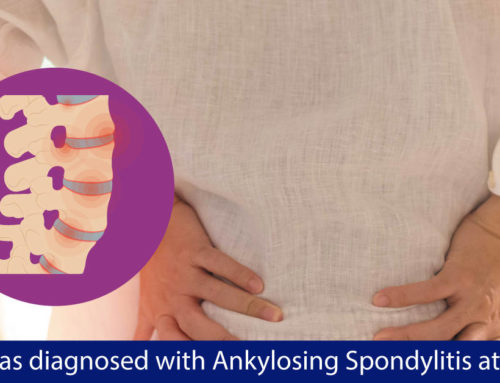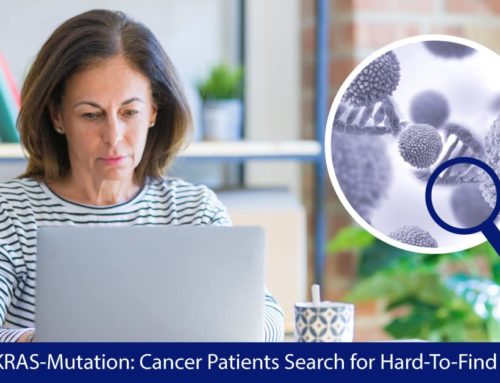Motivating change through online patient sharing

Humans evolved as storytellers. Experiences of the weather, nature, life, and the world have been explained through legends and myths. Sharing stories continues to build and maintain community.
As Marie Ennis O’Connor, Irish breast cancer survivor, blogger and marketing consultant states, patients’ stories are authentic and genuine “windows into the lived experience,”1 or as linguists would argue, their stories are rich sources of “real world evidence.”
Breast cancer patients have been sharing their stories online for many years now. On July 4, 2011, the #BCSM (for breast cancer social media) chat began its first exploration of communication and support on (the newer medium at the time) Twitter. During its first months, the women and men who participated every Monday night at 9 p. m. ET learned from, shared with, and supported one another in empowering ways.2
One of the most important exchanges to occur happened within the first few chats. Patients with metastatic breast cancer confronted their fellow breast cancer patients. First, they described going to in-person support groups and being told that they didn’t belong because they had metastatic disease.
debmthomas
When I had my recurrence I felt like the last person some support groups wanted to see, many were newbies & I was worst nightmare #bcsm
Mon Jul 11 18:28:20 PDT 2011 ReplyRetweetFavorite
As one participant, Donna Peach wrote in her blog, “Dancing through life’s adventure with breast cancer“,
“Often doors for support have closed on people because of fear…People who attend breast cancer support groups are often those who think their cancer won’t return; we with Metastatic Breast Cancer are, I guess, a wakeup that it can return…”3
Next, in tweets, came other revelations of isolation that metastatic breast cancer (MBC) patients experience,
ccchronicles
@jodyms @ostephaniaO Honestly, very few friends are able to deal with me and my StageIV cancer. Very strong, resilient few…..#bcsm
Mon Jul 11 18:31:13 PDT 2011 ReplyRetweetFavorite
ccchronicles
@stales I think you’ll find most of us don’t fear dying, but what comes in between. Very difficult to find people to talk to abt that #bcsm
Mon Jan 23 18:36:51 PST 2012 Reply Retweet
And shaming,
ihatebreastcanc
@whymommy I sometimes think people think (tho don’t say) that we got MBC bc we didn’t try hard enuf. Not realizing it could be them, 2 #bcsm
ccchronicles
T2: very dicey for me as BC mets patient. If I’m not being “positive” then people think I’ve given up. Not true fyi #bcsm
6:26 PM Dec 12th, 2011 from TweetDeck
ccchronicles
@jodyms No encouragement by culture to admit loss, anger, frustration. Just count your damn blessings seems to be the message #bcsm
6:21 PM Dec 12th, 2011 from TweetDeck
The stories they told were wake-up calls for other breast cancer patients. Donna Peach wrote during remission after she was first diagnosed,
“As I’ve gone through the therapy, I’ve gotten used to the idea that this thing was growing inside but the therapy is taking care of it. The question you keep asking yourself when you’re not thinking about anything in particular is, ‘How do I know it’s all gone.’ You don’t really get a clearance, except, I suppose, after you go through five years of negative tests.” 3
Yet, at the five-year mark, her cancer had metastasized to her spine.
The metastatic breast cancer patients told their fellow breast cancer “survivors” the fact that five-year survival does not necessarily mean cure, that early detection does not keep patients safe from recurrence, that people die from metastatic breast cancer.
@whymommy
One third of all breast cancer patients will become metastatic. Ignore us at your peril. #bcsm
Mon Oct 10 18:17:43 PDT 2011 Reply Retweet
Susan Niebur, @whymommy wrote in her blog, ““Toddler Planet”
“…it’s easy to overlook metastatic breast cancer survivors….Even the name is a misnomer. No one actually survives metastatic breast cancer. Every single one of us with metastatic breast cancer will die of metastatic breast cancer… the metastatic cancer movement has been stimeyed [sic] by the truth: most patients diagnosed first with metastatic breast cancer die within 3 years, a number that has not changed in the last 20 years. The 30% who have another cancer first that progresses to metastatic cancer may live longer (or shorter), but they are weary from the fight, and many have not felt welcome in the “pink” communities that shout HOPE from the rooftops.”
She also shared this,
“…I’m in pain, I told the psychiatrist I found after it all went to shit in July and I was hospitalized for pain that took away my normal life. I’m sad because I’m in pain. Do I need more meds?
No, he said. This is real sadness, because you’re in pain. And he offered me a chocolate bar, dark with sea salt sprinkles.
I’m in pain, I whispered to my sweetie as we drove back home, nibbling the chocolate and clutching the scrips.
I know, he said, but I love you. And he took me out for pizza in the warm fall day. As the sun shined on us, I smiled again, for all of it is do-able because of those three words. I love you.”4
Blogging and sharing their stories via Twitter helped them,
ccchronicles
@stales T1: I find blogging to very cathartic.Connecting with my truth. Sometimes life does just suck. #bcsm
2:17 AM Jan 10th from HootSuite
Rachel Cheatham Moro, @ccchronicles, wrote in her blog, “The Cancer Culture Chronicles,”
“At age 33, by chance, I discovered what simply felt like a hardening of tissue in one of my breasts….Upon meeting with my nurse practitioner I was examined (where she said she couldn’t feel anything)…I was summarily excused and told…come back in 6-months if I still felt something. After begging and pleading…I was given a prescription for a sonogram, since mammogram wasn’t considered appropriate for my age. Once again, nothing was found, and Nurse P summarily waved me off once again…I tend to tune out any discussion that I hear about screenings and awareness as touted by the pink ribbon brigade. My case completely fell outside any of the advertised guidelines related to screening, statistics and risk factors.In fact, it was adherence to those very guidelines that I believe caused that Nurse Practitioner to tune out my concerns and wave me away.”
ccchronicles
@jodyms T1 my cancer is a curse of the highest order. Like prison with no parole #bcsm 6:08 PM Dec 12th, 2011 from TweetDeck
But it also gave the breast cancer patients who had not become metastatic, valuable information and more, a new goal.
@ccchronicles
The other thing abt living with mets, is our worlds start to shrink. That’s where fearless friends are so important. #bcsm
10:40 PM – Jan 23, 2012
When Niebur, an astrophysicist, a wife and mother of two toddlers and Moro 6, a wife, daughter and international tax consultant at Ernst and Young, died on the same day, February 6, 2012, the community held a chat and dedicated themselves to being the voice for metastatic breast cancer.2 The hashtag #fearlessfriends is part of their campaign.
The stories exchanged in this community have made a difference. #BCSM continues under co-founders @stales Alicia Stales and @drattai Dr. Deanna Attai. As members of the community have died of MBC, including one of the chat’s founders, @jodyms Jody Schoger, these #fearlessfriends work to support each other–including metastatic breast cancer patients–to conduct research and make a difference. See the story “Fearless Friends” in Cancer Today5.
Inspire offers a trusted community to patients and caregivers. Our goal with this blog, this website and our content is to provide the life science industry access to the true, authentic patient voice. In so doing, we support faithful operationalization of patient-centricity. Take a look at our case studies, eBooks and news outlet coverage.
References:
1 http://journeyingbeyondbreastcancer.com
2Hughley, A. Hoffman, K. Rikard, R. (November, 2015). An analysis of a breast cancer tweetchat as a source of social support: An opportunity for bi-directional engagement in healthcare. Poster session presented at the Annual Convention of the American Public Health Association, Chicago.
3https://dancingsoles.wordpress.com/2004/11/24/radiation-plan/
4https://toddlerplanet.wordpress.com
5https://www.cancertodaymag.org/pages/Fall2017/Fearless-Friends.aspx
6https://cancerculturenow.blogspot.com/?m=1
Editor’s Note: The article “Patient Journeys” in PharmaVoice April 2019 p. 56; “Patient Focused Drug Development,” p. 34 and “Balancing Hope and Risk” p. 36 feature members of the Inspire team and “Patient Pulse” authors Monica St Claire, Sara Ray and Hannah Eccard, respectively.






